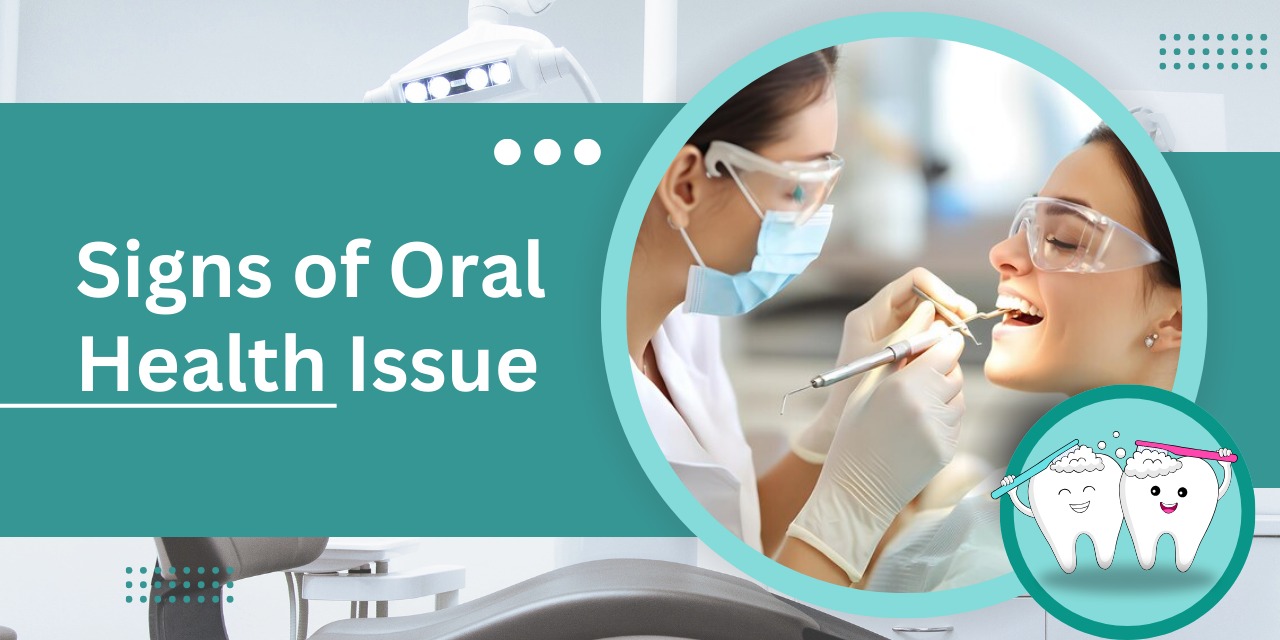Maintaining oral health is crucial from an early age, and parents should be vigilant about their infants’ dental well-being. Early detection of oral health issues can prevent complications later on. Here’s how you can spot early signs of oral health issues in infants.
Understanding Infant Oral Health
Infants are susceptible to various oral health problems despite having no teeth. Their gums and emerging teeth require care to prevent issues such as cavities, gum disease, and infections. Parents should start monitoring their child’s oral health even before the first tooth appears.
Common Signs of Oral Health Issues
Teething Pain: This is a natural process when teeth start to break through the gums. However, excessive discomfort can sometimes indicate issues.
Cavities: Also known as dental caries, cavities can occur even in baby teeth, especially with prolonged exposure to sugary substances.
Gum Disease: Gum inflammation or bleeding can be a sign of early gum disease, often linked to poor oral hygiene or infections.
Oral Thrush: This fungal infection presents as white patches in the mouth and can be painful, affecting feeding.
Signs of Oral Health Issues
Being aware of the signs of oral health problems can help you take proactive measures. Here are some early warning signs to look for:
⏯ Changes in Feeding Behavior
If your infant suddenly becomes fussy or refuses to eat, it may be a sign of oral discomfort. Teething pain, cavities, or oral infections can lead to changes in feeding habits. If you notice this change, inspect your baby’s mouth for any visible signs of irritation or injury.
⏯ Drooling More Than Usual
While drooling is common in teething infants, excessive drooling can also indicate oral health issues. If your baby is drooling excessively without any apparent reason, it’s worth checking their gums and teeth for swelling or signs of discomfort.
⏯ Swollen or Discolored Gums
Healthy gums are usually pink and firm. If you notice your infant’s gums are swollen, red, or bleeding, it may be a sign of gum disease or other oral health issues. Regularly examine their gums, especially during teething, when inflammation is common.
⏯ White Patches in the Mouth
The presence of white patches on the tongue, gums, or inside the cheeks may indicate oral thrush, a common fungal infection in infants. If these patches are present, consult a pediatrician or dentist promptly, as thrush can lead to feeding difficulties.
⏯ Persistent Bad Breath
While infants don’t typically have strong breath, persistent bad breath can indicate an underlying oral health problem. If your baby’s breath is consistently foul-smelling, it may be due to bacteria buildup, gum disease, or even digestive issues.
⏯ Difficulty with Teething
Teething can be a painful process for infants, but if your child is experiencing severe discomfort or unusual symptoms (like fever or rash), it may be worth discussing with a pediatrician. Sometimes, excessive teething pain can indicate other dental issues.
Importance of Regular Dental Checkups
Establishing a routine for Teeth checkup in Panchkula is essential for early detection and prevention of oral health issues. The American Academy of Pediatric Dentistry recommends that children visit a dentist by their first birthday or within six months after their first tooth erupts. Regular checkups can help in:
- Monitoring the development of teeth.
- Identifying potential issues before they become serious.
- Educating parents about proper oral care techniques.
Conclusion
Spotting early signs of oral health issues in infants is vital for their overall well-being. Regular dental checkups play a significant role in ensuring healthy development. If you’re looking for professional dental care for your child, consider visiting Dr Harsha Gupta at Dr Bakshi Gupta’s Eye Center in Panchkula. For appointments, you can contact them at +918847422418













